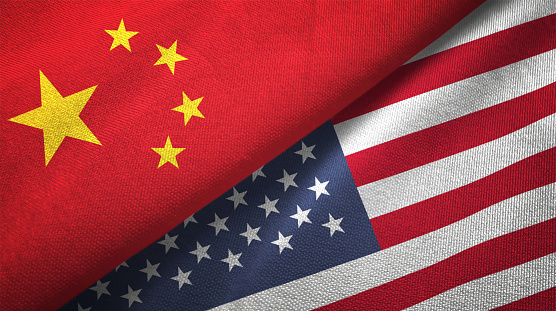
Editor's note: Andrew Korybko is a Moscow-based American political analyst. The article reflects the author's views and not necessarily those of CGTN.
Bloomberg published an article on August 9 titled "To counter China, U.S. needs to mobilize academia." The piece reported on a bill recently proposed by a bipartisan group in the House of Representatives to establish an "Open Translation and Analysis Center" (OTAC) focused on China, Russia and other countries of strategic interest. This entity would translate a slew of Chinese documents to help Americans better understand China. Bloomberg compared it to the Cold War-era "Foreign Broadcasting Information Service" that did the same thing for the former Soviet Union.
It's here where the gist of the article starts to become uncomfortable. The outlet goes on to remind readers that this proposed entity's predecessor produced studies that gave the U.S. a strategic edge in its global competition with the Soviet Union. This eventually resulted in the founding of what's been termed "Sovietology," which was utilized to help American decision makers better understand their opponent's perceived weaknesses that were subsequently exploited.
Influential individuals such as former National Security Advisor Zbigniew Brzezinski arose from these efforts. It's now known per his own admission that he played a major role in prompting the Soviet Union's military intervention in Afghanistan after urging U.S. President Jimmy Carter to arm the mujaheddin in summer 1979, approximately half a year before Moscow began its campaign there. People are products of their social environment so it can be presumed that Brzezinski's "Sovietology" background shaped his cunning strategy.
Many "Sovietologists" weren't advocates of peace and friendship who worked hard to devise policies intended to help the U.S. and Soviet Union pragmatically coexist, but were hawks who obsessively searched for perceived weaknesses in the Soviet system and then sought to take advantage of them at Moscow's expense. The possible churning out of these sorts of Sinologists in the coming future as an outcome of the "Sovietology"-inspired OTAC would be disastrous for Chinese-U.S. relations and global peace in general.

While one might argue that academics are objective by nature and should thus be allowed to study whatever it is that they're interested in, the American precedent in "Sovietology" proves that this isn't always the case. Sometimes these same supposedly independent experts are commissioned by the U.S. government to carry out studies with thinly disguised hostile intentions. The academics themselves might not be responsible for what intelligence analysts and decision makers do with their work, but they should at least be aware of the risks.
Studies focused on identifying an opponent's weaknesses aren't being funded as a favor to the research subject so that the U.S. can then give them some unsolicited advice about how to improve their country. Rather, they're intended to identify opportunities to exploit, which in turn could destabilize the other country and potentially lead to unpredictable long-term consequences like Brzezinski's fateful advice to arm the mujaheddin later did. Academics should know better whenever they're asked to participate in such studies and respectfully decline.
Of course, academics are also largely dependent on grants, many of which come from the government whenever it concerns anything related to international relations and especially a perceived American opponent like China. This means that the academics might have little practical choice when it comes to declining the offer since they need to provide for themselves and their families at the end of the day. In that case, they should do their utmost to warn the government of all the risks inherent in exploiting whatever it is that they want studied.
The "Sovietologist"-inspired Sinologists that might eventually rise to prominence in future American administrations as a result of the proposed OTAC should concentrate on improving bilateral relations with China instead of worsening them. Even if they're commissioned to do what essentially amounts to the latter, they have a moral responsibility to ensure that the U.S. government knows how badly everything might backfire if they try to exploit perceived Chinese weaknesses. These experts might make a meaningful difference if they try.
(If you want to contribute and have specific expertise, please contact us at opinions@cgtn.com.)

